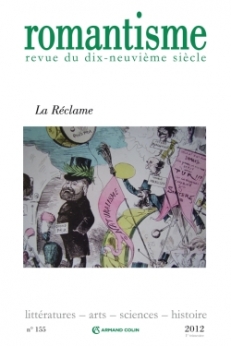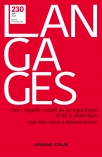
Romantisme n° 155 (1/2012)
Pour acheter ce numéro, contactez-nous
Recevez les numéros de l'année en cours et accédez à l'intégralité des articles en ligne.
L’article de réclame pour le livre fut accusé à la fin du XIXe siècle d’avoir tué la critique en se confondant peu à peu avec elle. La réclame dans le journal répond pourtant à une poétique précise. La confusion est venue de son insertion progressive dans des rubriques de faits divers, d’échos voire dans des espaces destinés à la critique. Les journalistes ont pris l’habitude d’insérer ces réclames non pas seulement par vénalité mais parce qu’ils étaient tentés par des propositions diverses (échanges d’influence, espoir d’éditions). Les écrivains sont eux-mêmes impliqués dans la fabrique des réclames : s’ils la fustigent publiquement, ils en sont souvent les rédacteurs. Cet article propose de faire émerger du journal, avec les réclames, un corpus hybride, collectif et contraint par des impératifs commerciaux mais aussi un corpus de « resaisie » des oeuvres par les auteurs tout à fait passionnant.
The book advertisement was accused at the end of the 19th century of having killed literary criticism by gradually becoming confused with it. Yet, book advertisements in the press were written following a poetics specific to them. Confusion between the two modes came about through the development of their being inserted within the news in brief sections of the papers, or in the gossip columns, or even within the sections devoted to literary criticism. Journalists got into the habit of inserting these ads not only for profit but also because they were attracted by other possible trade-offs (influence, publishing opportunities for their own books). The writers themselves were involved in the writing of these ads :even as they lash out at them in public, they are often the ones writing them. This article seeks to show how these ads constitute, emerging from the newspapers, a hybrid and collective body of texts heavily scripted by commercial necessities – but showing also in an extraordinarily interesting way how authors could « recapture » their works.

